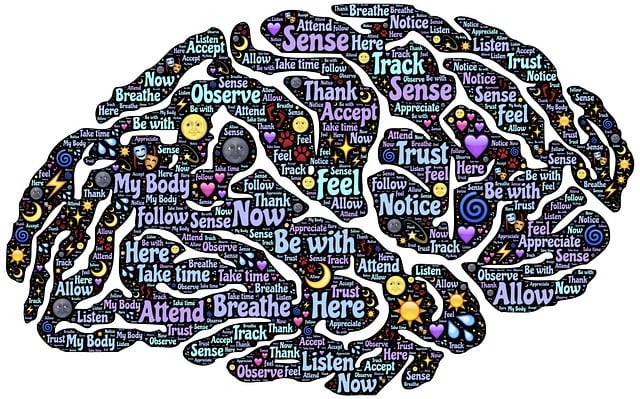Burnout among healthcare providers in Denver ADD-ADHD therapy settings is a growing concern impacting well-being, patient care, and organizational productivity. Early recognition of symptoms like exhaustion, detachment, and sleep pattern changes is crucial. The Mental Wellness Podcast Series can raise awareness and provide practical tools for self-care. Organizations should prioritize emotional well-being through open communication, mutual respect, team-building, and conflict resolution techniques. Proactive self-care practices such as setting boundaries, exercise, balanced diets, mindfulness, and support from peers or mentors are essential. Continuous learning through evidence-based training sessions helps combat burnout and promotes inclusive care environments in Denver ADD-ADHD therapy clinics.
In the demanding landscape of healthcare, burnout among providers is a growing concern. This comprehensive guide explores evidence-based strategies to combat burnout, focusing on the well-being of healthcare professionals in Denver and beyond. We delve into recognizing early signs of burnout, fostering supportive work environments, integrating self-care practices, encouraging professional development, and promoting continuous learning. By implementing these strategies, healthcare organizations can create a culture that nurtures resilience and prevents burnout among their dedicated providers.
- Recognizing Burnout in Healthcare Providers
- Creating a Supportive Work Environment
- Implementing Effective Self-Care Practices
- Professional Development and Continuous Learning
Recognizing Burnout in Healthcare Providers

Burnout among healthcare providers is a growing concern, affecting not only individual well-being but also patient care and organizational productivity. Recognizing burnout early is crucial for effective prevention strategies in Denver ADD-ADHD Therapy settings. Symptoms often manifest as physical and emotional exhaustion, detachment from work, and reduced professional efficacy. Healthcare workers may show increased irritability, difficulty concentrating, or changes in sleep patterns, reflecting a decline in mental wellness.
The Mental Wellness Podcast Series Production can play a vital role in raising awareness about burnout and promoting self-care practices such as Inner Strength Development and Self-Care Routine Development for Better Mental Health. Through engaging content and expert insights, these platforms encourage professionals to prioritize their well-being, providing practical tools and strategies to navigate the challenges unique to healthcare settings.
Creating a Supportive Work Environment

In creating a supportive work environment for healthcare providers, especially those offering Denver ADD-ADHD Therapy, it’s essential to implement strategies that foster emotional well-being promotion techniques and compassion cultivation practices. This includes establishing open communication channels where staff can freely discuss challenges and share ideas for improvement. A culture of mutual respect and understanding helps in reducing stress and burnout. Regular team-building activities, social gatherings, and collaborative problem-solving sessions can significantly enhance the sense of community within the workplace.
Furthermore, integrating conflict resolution techniques into the work environment is paramount. Healthcare professionals often deal with challenging situations involving patients’ families or colleagues. Skilled mediation and effective communication tactics enable them to navigate these conflicts constructively, reducing the potential for burnout. By prioritizing a positive and supportive atmosphere, healthcare organizations can ensure their providers feel valued and motivated, ultimately enhancing patient care in Denver ADD-ADHD Therapy settings.
Implementing Effective Self-Care Practices

In the high-pressure environment of healthcare, burnout is a significant concern for providers. Implementing effective self-care practices is an essential strategy to combat this issue. Healthcare professionals in Denver, particularly those specializing in ADD-ADHD therapy, can find solace in adopting routines that nurture their mental and physical well-being. This includes setting boundaries between work and personal life, engaging in regular exercise, maintaining a balanced diet, and practicing mindfulness or meditation. Such practices not only enhance individual resilience but also improve patient care by increasing focus and empathy.
Moreover, seeking support from peers, mentors, or professional counselors can be transformative. Mental Health Policy Analysis and Advocacy groups offer valuable resources for healthcare providers to understand systemic issues contributing to burnout and advocate for change. Additionally, participating in Mental Wellness Podcast Series Production can provide creative outlets for sharing experiences, tips, and stories related to self-care, fostering a sense of community and collective well-being. Healthcare Provider Cultural Competency Training is another vital initiative, as it equips professionals with the skills to understand and address diverse patient needs, reducing personal stress and promoting inclusive care environments.
Professional Development and Continuous Learning

In the fast-paced world of healthcare, where demands are ever-increasing and patient needs are diverse, professional development and continuous learning are vital tools to prevent burnout among healthcare providers. Denver ADD-ADHD Therapy clinics, for instance, can ensure their therapists stay up-to-date with the latest research and treatment modalities by offering regular training sessions focused on evidence-based practices. This not only enhances clinical skills but also fosters a sense of growth and engagement, two key factors in maintaining emotional regulation and mental wellness among professionals.
By integrating continuous learning into their work culture, healthcare organizations can help mitigate risks associated with mental health professionals, such as burnout and secondary trauma. Regular risk assessments for staff, coupled with comprehensive training programs, enable early identification of individuals who may be struggling. This proactive approach, reminiscent of navigating a complex labyrinth, allows for timely interventions, ensuring that providers feel supported in their practice and better equipped to handle the challenges they face daily.
Healthcare provider burnout is a significant concern, but with the right strategies, it can be mitigated. By recognizing signs of burnout early, fostering a supportive work environment, adopting effective self-care practices, and prioritizing continuous learning through resources like Denver ADD-ADHD Therapy, professionals can enhance their resilience and prevent exhaustion. These proactive measures are essential for maintaining high-quality patient care and promoting the well-being of healthcare providers themselves.











